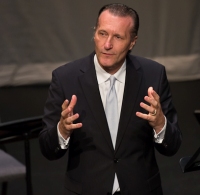By Jamshed Baruah
IDN-InDepth NewsAnalyis
VIENNA (IDN) – Since the then Indian Prime Minister Jawaharlal Nehru called for a “standstill agreement” on nuclear testing on April 2, 1954, 183 out of 196 states around the world have signed the Comprehensive Nuclear Test-Ban Treaty (CTBT) that bans atomic explosions by everyone, everywhere: on the Earth’s surface, in the atmosphere, underwater and underground.
157 countries including three of the nuclear weapon States – France, Russia and Britain – have ratified the treaty. But before the CTBT can enter into force, 44 specific nuclear technology holder countries must sign and ratify it. Of these, eight are still missing: China, Egypt, India, Iran, Israel, North Korea, Pakistan and the USA. In fact, India, North Korea and Pakistan have yet to sign the treaty.
Nevertheless since September 24, 1996 when the CTBT opened for signature at the United Nations General Assembly in New York, following three years of intense negotiations, the world has become slightly safer. Because the treaty has a unique and comprehensive verification regime to make sure that no nuclear explosion goes undetected.
In the five decades before the CTBT, over 2,000 nuclear tests shook and irradiated the planet. But, according to the Preparatory Commission for the Comprehensive Nuclear-Test-Ban Treaty Organization (CTBTO), the post-CTBT world saw only a handful of nuclear tests: those by India and Pakistan in 1998 and by North Korea in 2006 and 2009.
All these met universal condemnation, including unanimously adopted UN Security Council sanctions. “The zero-tolerance stance against nuclear tests is reflected by the number of States Signatories to the CTBT: 183, or over 90% of all countries,” avers the Vienna-based CTBTO, headed by the Executive Secretary, Tibor Tóth from Hungary.
Joint call
And yet there is no reason for complacency. With this in view, foreign ministers and other high-level representatives, who met on September 27 at the UN headquarters in New York, issued a joint call for the entry into force of the CTBT.
In their joint statement, the foreign ministers described the CTBT’s entry into force as “a vital step towards the reduction and eventual elimination of nuclear weapons by constraining the development and qualitative improvement of nuclear weapons…We call upon all States that have not done so to sign and ratify the Treaty, in particular the remaining eight Annex 2 States [these are China, the Democratic People’s Republic of Korea, Egypt, India, Iran, Israel, Pakistan and the United States].”
UN Secretary-General Ban Ki-moon echoed this appeal, urging the states that have yet to sign or ratify the CTBT: “You are failing to live up to your responsibility as a member of the international community.”
CTBTO Executive Secretary Tóth provided the historical context to the meeting against the background of the 50th anniversary of the Cuban Missile Crisis. He called for political leadership to overcome the nuclear danger, stressing that the CTBT is a milestone on the way to a nuclear-weapon free world.
The meeting at the UN headquarters was co-hosted by the foreign ministers of Australia, Canada, Finland, Japan, Mexico, the Netherlands and Sweden.
Reykjavik event
Pulitzer Prize-winner Richard Rhodes, author of the Reykjavik play, reminded delegates that the risk of nuclear extinction is man-made. Thus a man-made solution could be found, as the 1986 Reykjavik summit had demonstrated. In Reykjavik, U.S. President Ronald Reagan and Soviet General Secretary Mikhail Gorbachev had come close to an agreement to abolish their nuclear arsenals: “A nuclear-weapon free world is not a utopian dream,” Rhodes said. He also invited all delegates to the performance of the Reykjavik play later that day at the Baruch Performing Arts Center in New York.
The play re-enacts the moment in October 1986 at the Reykjavik summit in Iceland when Reagan (Richard Easton) and Mikhail Gorbachev (Jay O. Sanders) came close to abolishing all nuclear weapons. More than 25 years later, the drama of the meeting and its potential to fundamentally change the course of history continues to ignite the imagination and inspire hopes for the future. The performance is directed by Tyler Marchant and produced by Primary Stages.
With the file on the Reykjavik negotiations declassified, key players from the summit are now able to speak freely. In the panel discussion after the performance they considered lessons learned, opportunities missed and what is needed today to move forward in eliminating nuclear weapons.
“In the current political climate, which is still clouded by nuclear threats, revisiting Reykjavik is a reminder that strong leadership, with political will and vision, can act to make nuclear disarmament breakthroughs,” said Tóth.”It is time for the world’s leaders to heed Reykjavik’s message. In particular, from the eight remaining countries needed to bring the treaty into force.”
As far as India is concerned, it has expressed its “regret that the (CTBT) text, as has finally emerged, does not do justice to the negotiating mandate. It is not a comprehensive ban but merely a ban on nuclear explosive testing. It also lacks a definitive commitment to nuclear disarmament”.
However, according to the CTBTO, Keith Hansen, part of the United States’ CTBT negotiating team, believed that India’s refusal to sign the CTBT reflected not only dissatisfaction with the treaty, but also a desire to join the ‘Nuclear Club’ of nuclear armed countries. [IDN-InDepthNews – October 2, 2012]
2012 IDN-InDepthNews | Analysis That Matters
Photo: CTBTO Executive Secretary Tibor Tóth | Credit: CTBTO Photographer Michael Pressman
Follow us on Twitter and Facebook:
http://twitter.com/InDepthNews
http://www.facebook.com/IDN.GoingDeeper

